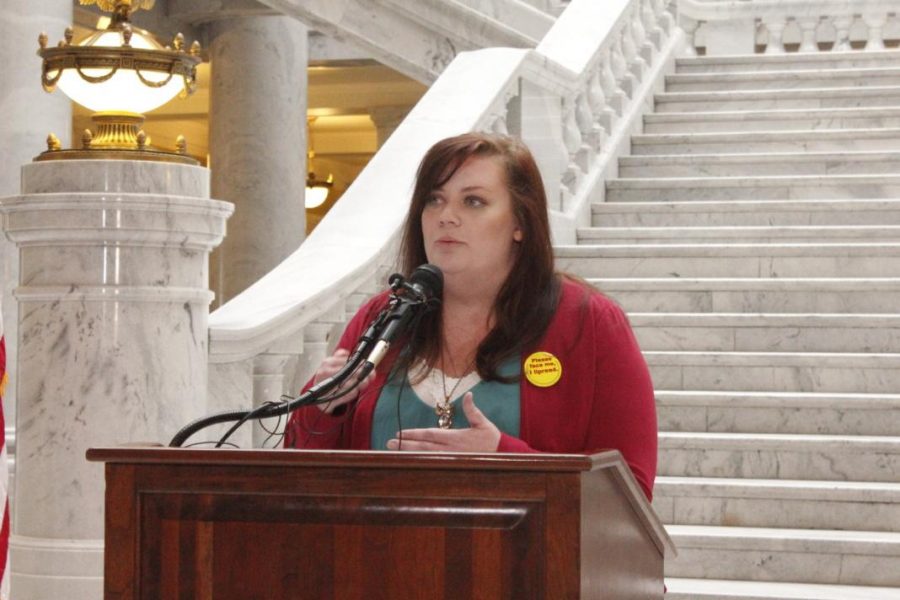University of Utah graduate Amy Joe Curtis spoke at a press conference in the Utah Capitol rotunda on March 5 following the tabling of a controversial bill aimed at addressing campus sexual assault.
“When I was a freshman in college I was a victim of rape myself, so I know what it’s like to be a college student and have to deal with that every day,” Curtis said.
Campus Sexual Violence Reporting, or HB254, would have amended state code to change protocol for postsecondary institutions responding to incidents of sexual assault. In response to multiple accounts of Brigham Young University using its honor code to punish victims of sexual assault, the bill would prohibit such action. The bill, proposed by state Rep. Kim Coleman, R-West Jordan, also would have criminalized retaliation against a sexual assault victim.
What Curtis and other advocates for victims of sexual assault were worried about, however, was a portion of the bill that enabled universities to report incidents of sexual assault to law enforcement without victims’ permission.
“Institutions should not coerce anyone to report or to handle their sexual assault case in the ways institutions want cases handled,” said Kiman Kaur, president of Students for Choice at the U. “Power should be given to survivors. Survivors and their decisions to handle their cases should be decisions that are respected no matter what.”
HB254 is a second iteration of HB326, which was proposed by Coleman during the 2017 legislative session and failed with a margin of five votes. This year, the bill passed out of the House of Representatives, but after considerable time was spent amending HB254 in both chambers, the legislative session closed before the Senate could vote on it.
In an interview with The Daily Utah Chronicle, Curtis expressed concern that the bill might return during the next legislative session. Coleman announced she is running for reelection next year.
“It’s not over yet,” Curtis said. “[Coleman] brought it back from last year, so if we need to kill it we will keep fighting it, but it’s just frustrating.”
Although it would have affected the school’s procedures for handling sexual assault, the U did not take a stand on the bill.
“As it is drafted, HB 254 is generally consistent with the U’s current policies and practices for addressing reports of sexual misconduct,” said Annalisa Purser, a spokesperson for the U.
However, Curtis, who works as a victim advocate and social worker, believed that the bill would undermine victims’ control over their story.
“For the most part, you have the victim advocate who is very educated on whether or not it needs to be reported and they, right now, can already decide to report if that is the case, but they do ask for your permission,” Curtis said. “They give you more control.”
Curtis expressed concern that if re-proposed and passed, the bill could sabotage charges pressed against sexual assault perpetrators.
“When a victim isn’t ready to go to bat, the case falls apart every single time,” Curtis said. “They need to just wait and be patient for the victim to be ready.”
During the March 5 press conference, state Rep. Angela Romero, D-Salt Lake City, said, “If it would have passed it takes away from a victim-centric approach and takes away the power from victims and we don’t want to do that.”
In closing the press conference, Turner Bitton, the executive director for the Utah Coalition Against Sexual Assault pledged to victims “that this legislation will not come back and that if it does we will be here to meet it and to defeat it again.”
c.giardinelli@dailyutahchronicle.com
@TheChrony


